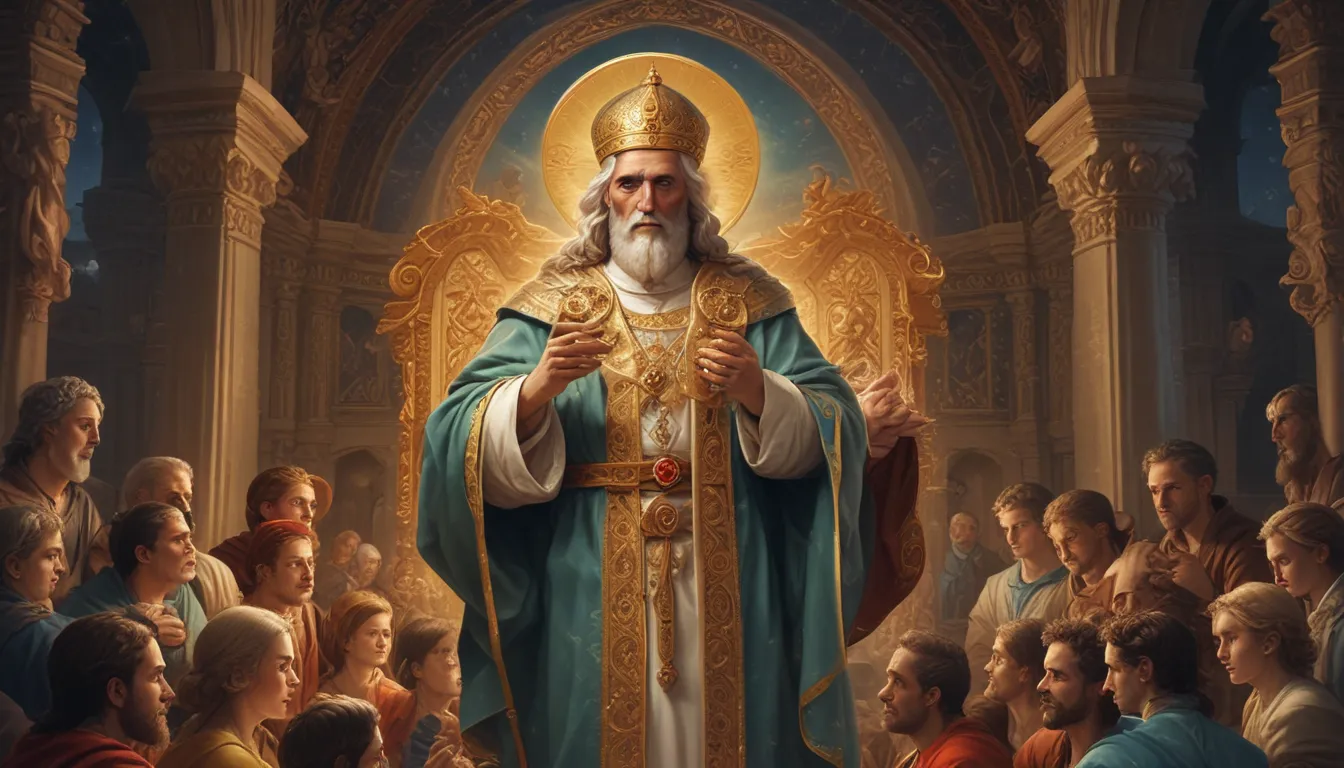The images in our articles may not match the content exactly. They are used to grab your attention, not to show the exact details in the text. The images complement the text but do not replace it.
Welcome to a journey through the captivating world of saints, revered figures who embody virtues and serve as sources of inspiration for individuals across various religious traditions. From the process of canonization to the lasting impact of their lives, saints continue to influence beliefs and practices worldwide. Join us as we explore 19 fascinating facts about saints, shedding light on their diverse roles, enduring legacies, and universal significance.
Unveiling the Sacred Lives of Saints
Saints are individuals revered for their exceptional holiness, compassion, and unwavering devotion to their faith. Found in religions like Christianity, Islam, Hinduism, and Buddhism, saints inspire acts of kindness and selflessness, serving as beacons of hope and moral guidance throughout history. Their remarkable stories and enduring legacies continue to resonate with believers and non-believers alike, offering timeless wisdom and insights into the human experience.
The Process of Canonization: A Path to Sainthood
The process of canonization is the official recognition of a person as a saint by the Catholic Church. It involves meticulous research to affirm the sanctity and exemplary life of an individual, including verifying miracles attributed to the candidate and evaluating their virtuous deeds and impact on society. Through this thorough process, saints are formally acknowledged for their devotion and contributions to the faith community.
Saints as Intercessors: Advocates in Prayer
Many individuals turn to saints as intercessors, believing in their ability to advocate on their behalf before the divine. This practice stems from the belief that saints, due to their closeness to the divine, can offer assistance and blessings to those who seek their intervention. The veneration of saints as intercessors reflects a deep faith in the interconnectedness of the spiritual realm and the power of their influence.
Embracing the Veneration of Saints Worldwide
The veneration of saints is a prominent aspect of religious traditions worldwide, transcending cultural boundaries and permeating various aspects of religious life. From pilgrimage sites dedicated to revered saints to the celebration of feast days in their honor, the influence of saints is deeply ingrained in the practices and rituals of believers across diverse cultures and faiths.
Patrons of Causes and Professions: Saints with Specialties
Saints often serve as patrons of specific causes, professions, and life situations, offering guidance and protection to individuals based on their areas of expertise or influence. From Saint Christopher, the patron saint of travelers, to Saint Luke, the patron saint of physicians, believers seek the intercession of saints in times of need, trusting in their ability to offer support and blessings in their respective domains.
Chronicles of Virtue: The Lives of Saints in Hagiographies
Hagiographies are biographical accounts of the lives of saints, showcasing their virtues, struggles, and contributions to society. These narratives serve as sources of inspiration and moral teachings, providing insights into the exemplary conduct and unwavering faith of revered individuals. Through hagiographies, the legacies of saints are preserved and passed down through generations, inspiring acts of charity and compassion.
Relics: Sanctified Remnants of Saints
The relics of saints, including physical remains or objects associated with them, hold special significance in many religious traditions. Believers revere relics for their spiritual significance, seeking blessings and spiritual connection through veneration and prayer at churches and pilgrimage sites where relics are housed. The relics of saints serve as tangible reminders of their enduring presence and influence in the lives of the faithful.
Celebrating Saints with Feast Days
Feast days dedicated to saints are observed with reverence and joy, marked by special religious services, processions, and communal gatherings. These occasions provide opportunities for believers to honor the lives and legacies of saints, strengthening their faith and fostering a sense of spiritual connection and community. Feast days serve as reminders of the virtues and teachings embodied by saints, encouraging individuals to emulate their example in their own lives.
Inspiration through Art: Depicting Saints in Religious Iconography
Saints are often depicted in religious art and iconography, symbolizing their virtues, spiritual significance, and impact on the faithful. These visual representations serve as powerful reminders of the virtues and teachings exemplified by saints, inspiring acts of charity, compassion, and faith among believers. The visual portrayal of saints in art captures the essence of their character and legacy, inviting viewers to reflect on their virtues and emulate their example.
The Enduring Legacy of Saints: Inspiring Acts of Devotion and Reverence
The legacy of saints transcends generations, inspiring ongoing acts of devotion, pilgrimage, and commemoration among believers. Their enduring influence serves as a source of spiritual nourishment and moral guidance, perpetuating their impact on the lives of individuals seeking inspiration and guidance. Through acts of devotion and reverence, believers pay homage to the virtues and teachings of saints, fostering a sense of spiritual connection and community across diverse backgrounds and traditions.
FAQs
What defines a person as a saint?
A person is typically recognized as a saint based on their exceptional holiness, extraordinary acts of compassion, and unwavering devotion to their faith. The process of canonization involves thorough scrutiny of the individual’s life, virtues, and the performance of miracles to affirm their sanctity.
Are saints only recognized in Christianity?
While saints are prominently venerated in Christianity, the concept of revered individuals with exceptional spiritual qualities exists in various religions, including Islam, Hinduism, Buddhism, and others. These figures serve as sources of inspiration and guidance for followers across diverse traditions.
Conclusion: Discovering the Profound Impact of Saints
In conclusion, saints play a significant role in various religious traditions, embodying virtues and serving as inspirational figures for millions worldwide. Their enduring legacy continues to inspire acts of kindness, compassion, and faith, resonating across generations and cultural landscapes. By exploring the fascinating facts about saints, we gain a deeper understanding of their profound impact on the spiritual lives of believers and the moral fabric of societies, underscoring their timeless significance in the realm of faith and spirituality.
At the heart of veneration, saints represent the universal human desire for spiritual guidance, role models, and interconnectedness with the divine realm. As believers and non-believers alike draw inspiration from the lives and legacies of saints, their enduring influence transcends boundaries of culture, geography, and tradition, fostering a sense of unity and spiritual kinship among individuals worldwide.
Dig deeper into the world of saints, exploring the captivating stories of Saint Lucy, the fascinating history of AJ Saint-Georges 23 Football Club, and the rich traditions of the New Orleans Saints. From revered individuals to iconic sports teams, there is always more to learn and appreciate in the realm of saints, offering insights into the diverse and inspiring tapestry of human spirituality and belief.






